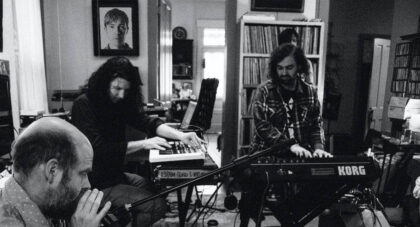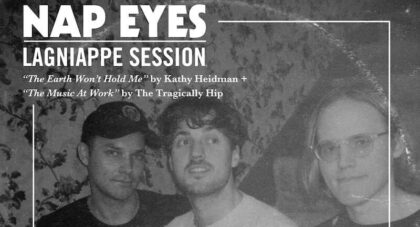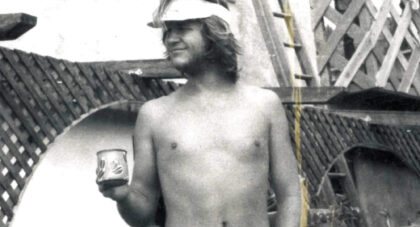45 years ago, a young deejay named Archie Patterson launched a radio show on KFIG FM in Fresno, California. Dubbed Eurock, the weekly program was devoted to psychedelic music coming out of Europe -- Klaus Schulze, Amon Düül II, Can, Tangerine Dream, Faust, Guru Guru, and more –- spun by an enthusiastic Patterson, who heard in the music a cosmic resonance.
It began a lifelong mission for Patterson, who soon spun the show off into a fanzine of the same name, and has continued, for four-and-a-half decades, to distribute, promote and foster discussion of progressive music from all around the world, helping to popularize German “krautrock” and introduce director Michael Mann to the electronic group Tangerine Dream, which would go on to score his first film, Thief.
In recent years, Patterson has been busy assembling collections of Eurock books, including 2002’s Eurock: European Rock & the Second Culture and 2013’s Music & Second Culture Post Millennium: Eurock. In 2015, he contributed to a massive box set by German label Vinyl On Demand, American Cassette Culture: Recordings 1971-1983, featuring examples of the electronic music distributed by Patterson’s Eurock Distribution from experimental electronic composers like Steve Roach, Don Slepian, K. Leimer, and more.
These days, Patterson maintains the Eurock website, featuring interviews and podcasts, and he’s working on a film documenting the history of the show/zine/label. AD spoke to him from his basement (the “dungeon,” he calls it) about his history and guiding artistic principle.
Aquarium Drunkard: In 1971, you launched the Eurock radio show on KFIG FM. What were your early playlists like?
Archie Patterson: I would just pick records from my collection, so to speak that I wanted to play each week, which were all basically imported from Virgin Records’ very first micro-store…they were import-only from the European continent or cosmic French rock.
In particular, I had a friend go to meet [representatives of the influential kosmische musik label] the Cosmic Couriers in ’73. I had gotten a whole lot of their music, so we did a program with Klaus Schulze, his second album Cyborg, and this was innovative radio in the sense that we had two turntables. We played side one and side four simultaneously. So, it was going out over the airwaves, and since there were different undulating rhythms in each piece, but they were in the same key, we had people call us up and say, “Man, what is this that you’re playing? I’ve never heard anything like this.”
Only the good shit. Aquarium Drunkard is powered by its patrons. Keep the servers humming and help us continue doing it by pledging your support.
To continue reading, become a member or log in.


